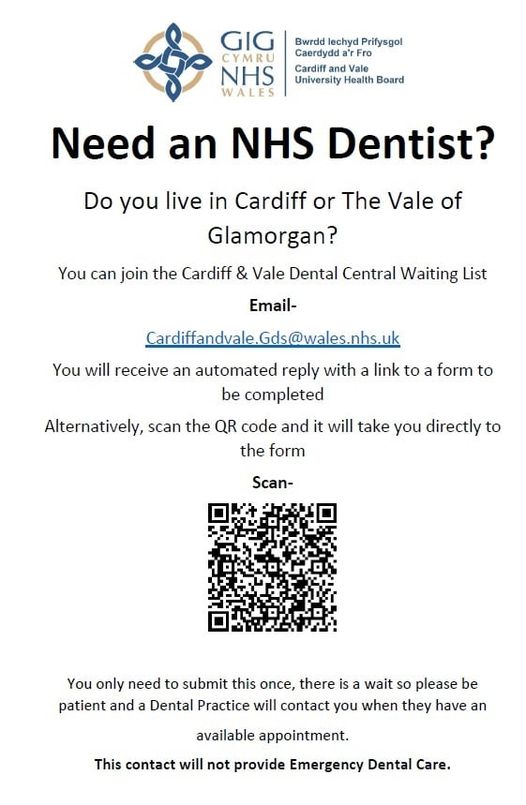Dentist Care

Everyone should have access to good quality NHS dental services.
Research by the British Dental Association found that 600,000 patients go to their GP's with dental problems, rather than see a dental professional. Contrary to belief, GP's cannot deal with Dental complaints as they are not qualified dentists.
There is no need to register with a dentist in the same way as with a GP because you are not bound to a catchment area. Simply find a dental surgery that's convenient for you, whether it's near your home or work, and phone them to see if there are any appointments available. Ask if you’re not sure whether the practice provides NHS care.
To find a dentist, you can:
- Search by post code under "Find Local Services"on the Health in Wales home page
- Search by post code or by nearest town on the NHS Direct Wales website
- Browse a list of dentists in your area on your local Health Board website. You can find links to the 7 Health Boards in Wales on the Services Directory
Dental surgeries will not always have the capacity to take on new NHS patients. You may have to join a waiting list, look for a different dentist who is taking on new NHS patients, or be seen privately.
Once you find a dental surgery, you may have to fill in a registration form at your first visit, which is just to add you to their patient database. But that does not mean you have guaranteed access to an NHS dental appointment in the future. If the dental practice you contact is full or doesn't provide NHS care, this doesn’t mean that there is no NHS dental care available locally. Contact the dental helpline in your Health Board area.

Patients can now also fill in an online form to request that their details be added to the General Dental Service (GDS) Centralised Waiting List: you will be contacted directly by a dental practice when a place becomes available, however there is a significant wait for places as the capacity in NHS dental services is developed.
Dental emergency and out-of-hours care
If you think you need urgent dental care, contact your usual dentist as some surgeries offer emergency dental slots and will provide care if clinically necessary.
You can also contact NHS 111, who can put you in touch with an urgent dental service.
You can also call the emergency dental line on 02920 444500.
Do not contact a GP, as they will not be able to offer urgent or emergency dental care.
When to go to A&E
Only visit A&E in serious circumstances, such as:
- severe pain
- heavy bleeding
- injuries to the face, mouth or teeth
If you're not sure whether you should go to A&E, contact NHS 111, who will be able to advise you.